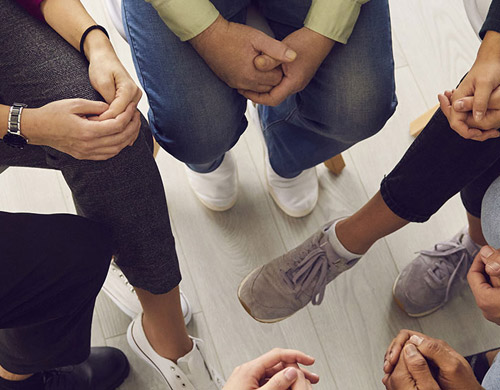Drug and alcohol dependence are hard to address when they hurt you or someone you love. Although addiction is a disease, it is manageable when evidence-based treatments are explored. Long term recovery from addiction is possible.
Learn about how addiction recovery can be maintained if you or someone you love can apply an integrated addiction treatment program.
What is Addiction Rehab (Rehabilitation)?
The term addiction ‘rehab’ is applicable to all of the medical and therapeutic treatments used to help people who are struggling with dependencies on prescription drugs or illegal drugs. There is no ‘one size fits all’ approach to treatment because it needs to be unique to your requirements and may incorporate detox, inpatient and outpatient care, and long-term aftercare programs.

Facts & Statistics about Addiction in Mendocino
Prevalence of Substance Use Disorder, by Drug Type
(IN THOUSANDS)
- 2,7578.5%Any Substance
- 2,0886.4%Alcohol
- 1,0683.3%Ilicit Drugs
- 2060.6%Pain Medication
Drug- and Alcohol-Induced Deaths by Age Group, California, 2016
- Alcohol-Induced
- Drug-Induced
- 18 to 250.5
- 9.6
- 26 to 354.3
- 13.9
- 36 to 6424.2
- 22.9
- 65+23.7
- 9.4
Drug Use, by Selected Type and Age Group California, 2015 to 2016
- 12 to 17
- 18 to 25
- 26+
- Marijuana*13.2%
- 34.0%
- 13.5%
- Misuse of Pain Medications3.5%
- 8.0%
- 4.3%
- Cocaine0.8%
- 7.2%
- 1.8%
- Heroin0%
- 0.4%
- 0.2%
What are the treatment options available in Mendocino?
Understanding and healing the root causes behind your drug or alcohol addiction can be achieved through the use of an holistic treatment approach. Addiction symptoms should be treated but building new life skills encourages you to tackle the reasons that lead to your addiction to drugs or alcohol.

Private Residential Programs
Staying at a treatment center and undergoing all of your treatments there is known as a residential rehab program. Having Access to 24-hour support and addiction treatment is no doubt one of the key benefits.
By being away from your home and living at the treatment facility you will protect yourself from the stressors that contributed to your substance dependence. By choosing to stay in a safe and supportive environment, you have a greater chance of finishing your addiction treatment program while protecting yourself against relapse and its potential dangers. A residential rehab program offers the best results when you have a dual diagnosis, a complex substance dependency or co-occurring disorders.
Taking part in a residential rehab program is the most effective way to treat addiction, and sustaining it requires persistent focus because maintaining recovery is difficult during the first year. On completion of your inpatient rehab program, you must transition towards greater independence as you build goals for your new life.
Do You Need Help?
Our addiction advisers are here to help you.

Sober Living Programs
You can build the skills necessary to exercise control over your life by participating in a sober living program, which will guide you through the transitional period. This can be done by:
- Daily guidance from a house manager
- Developing guidelines to manage your behavior in recovery
- Assisting you to build important relationships with peers who have similar difficulties to you
Outpatient Programs
Outpatient rehab programs offer more flexibility because you can continue with work commitments while living at home, but you attend the rehab facility for any treatments.
Outpatient programs should provide you with:
- Education about substance use disorders
- Therapeutic support and counseling in the form of group therapy or one-to-one interventions – The duration of an outpatient program is customized to your needs and lasts between three months to over a year.
Detox Only Programs
Taking part in a detox program is the first step in rehab as it tackles your physical dependency by eliminating substances from your body. During the detox phase you will develop withdrawal symptoms as the system stabilizes to function independently of the substance it was physically reliant on.
The withdrawal process symbolizes the beginning of the rehabilitation process, and must be followed up by tackling the root causes of your addictive behavior, to avoid repeating the same pattern of behaviors. A lot of substances result in protracted cravings and withdrawal symptoms after you have been through the detox phase. In rehabilitative therapy you will learn the coping skills for long-term recovery, so that you can reduce the risk of relapse in the future.
Paying for Private Treatment
If you opt for private treatment, you can make a claim through your healthcare policy or pay for treatment yourself. Most insurance providers will contribute to at least part of the costs associated with rehab, including a medically-supervised detox, rehab treatment and medical supplies, as well as post-treatment support. Your policy rules and your provider will determine the amount you will be able to claim.
We advise that you check the amount covered for treatment prior to enrolling in rehab. To find out what you could qualify for, please go to our Verify Your Insurance page.
Clients are liable for the cost of rehab if they do not claim via their insurance provider. Some treatment facilities can offer a payment plan to clients who can’t pay the full cost of rehab.
State Funded Programs
State-funded rehabilitation programs have been designed to assist people without the financial resources to deal with an alcohol or drug use disorder. Using stipends from a combination of state, federal and Medicaid budgets, these programs will remove financial hurdles to rehab by offering:
- Medically-supervised drug/alcohol detox
- Addiction Rehabilitation and aftercare services.
In order to participate in a state-funded rehabilitation program you need to provide proof that you reside in a low income household or have little to no healthcare cover:
- Proof of residence
- Proof of earnings
- Details about your addiction from your medical history and details about your addiction
- Proof that you have the legal right to live and remain in the US
You can discover more about the application process here: https://www.grants.gov/. You can also find direct details to contact your state agency

The following state-funded addiction rehab programs are available in Mendocino:
Mendocino County Substance Use Disorders Treatment
790 South Franklin Street, Suite B , Fort Bragg, CA 95437
707-961-2665
https://www.mendocinocounty.org/County of Mendocino Substance Use Disorders Treatment
474 East Valley Street, Willits, CA 95490
707-472-2637
https://www.mendocinocounty.org/Mendocino County Substance Use Disorders Treatment
1120 South Dora Street, Ukiah, CA 95482
707-472-2637
https://www.mendocinocounty.org/
Maintaining Addiction Recovery in Mendocino
When you leave the rehab center, you may need some time to adjust to your new life. At the rehab center the environment was safe and you had professional support. When you leave, you may encounter new challenges or triggers that test your coping skills in ways you may not have anticipated. Clients who had severe dependencies find long term recovery more difficult when they leave rehab if they do not have a social support structure. Guidance and aftercare support is integral in the early stages of recovery to help prevent relapse.
The following AA/NA meetings are available in Mendocino:
AA - Teleconference Topic Reading Mendocino
Open: 988 School Street, Mendocino, CA, 95460
Monday: 7:00 pm – 8:00 pm
https://alcoholicsanonymous.com/AA - Teleconference 11th Step Meditation
Temp Closure: 988 School Street, Mendocino, CA, 95460
Tuesday: 7:30 pm – 8:30 pm
https://alcoholicsanonymous.com/AA - Speaker Discussion
In-Person Meeting: 988 School Street, Mendocino, CA, 95460
Wednesday: 7:00 pm to 8:00 pm
https://mendocinocoastaa.com/
Aftercare & Alumni Programs
An aftercare program is a resource to support your recovery when you go back to your daily life. Unfortunately Relapse can happen in 60% of individuals, and due to the unpredictability of life outside of rehab, having aftercare is an important part of your long term recovery. As you get near to finishing your treatment program, we will collaborate with you to design an aftercare program that includes services that are vital to your long-term recovery.
After completing your rehabilitation program you will be eligible for joining an alumni community program so you can stay close to staff and ex-clients. You will have access to mentorship and support from other people in recovery, as well as participate other events. You might also want to return the favor by supporting other individuals in recovery.
Support Groups (Fellowship Meetings)
Support groups continue to be an important part of long-term recovery because social responsibilities inspire long-lasting sobriety. Some of the best and most used support groups are Alcoholics Anonymous and Narcotics Anonymous, which make use of the 12-steps to support individuals in recovery via regular meetings. When you take part in support groups, you will be able to share your challenges in recovery and listen to other members’ experiences. Many people in recovery attend local meetings to support them in the early and later stages of addiction recovery. Support groups provide them with vital tools to stay away from substances, and allow them to take responsibility for their life.

Support for Families & Children Affected by Addiction

Addiction hurts everyone living in the household to some extent. All members of a family need help with a household addiction, not just the individual struggling with addiction.
Family support groups provide you with vital coping strategies for your own life and allow you to offer more support to the loved one who has issues with substance dependence. Family members will benefit from joining support groups such as:
- SMART Recovery Family & Friends
- Parents of Addicted Loved Ones
- NAMI Family Support Groups
- Al-Anon
- Families Anonymous
- Alateen
- Nar-Anon









